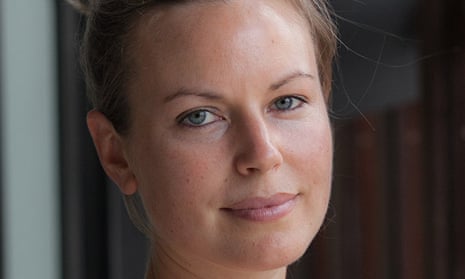Ceridwen Dovey’s novel Only the Animals doesn’t behave like a novel. It slips between categories: from a collection of short stories, towards a collection of essays, and back to the novel. It both defies and celebrates the possibilities of the form – in the tradition of JM Coetzee. It is an ambitious book with a fable-like surface, and a whole churning world beneath. Following on from her first novel Blood Kin (2007), Only the Animals confirms Dovey’s talent.
Only the Animals is a story told by the souls of ten dead animals. Each animal is caught up in a human conflict over the last century. They tell the stories of their deaths. A mussel speaks of its death in the Pearl Harbour bombings, an elephant from the 1987 Mozambique civil war, a bear of its death during the Bosnia-Herzegovina conflict of 1992. Not only is each story told during a different conflict, and by a different animal, each story pays homage to a writer.
The mussel’s journey to Pearl Harbour is a hilarious reinterpretation of Jack Kerouac’s On The Road. The naval dolphin caught up in the Iraq conflict writes a letter to Sylvia Plath. We meet Tolstoy’s turtle. For the careful reader, and Only the Animals does ask for a careful reading, there is joy in recognizing the homages to past writers – who themselves wrote imaginatively about animals. The prose takes on the tone, lexicon, and in some cases quotes directly from these writers’ texts. The referential nature of the prose could become tiresome in less talented hands, but Dovey is beholden to story first. The dolphin speaking of Ted Hughes says, "there is something he does with language that makes my brain tingle," and indeed, we feel that tingle here in Only the Animals.
The tale of the twin elephants in Mozambique, in the Soul of Elephant chapter, is heartbreaking and riveting. The ending is a punch to the guts, in the way that good endings should be. It’s painfully beautiful. The setting of a country in the depths of a civil war – with a populace dying of starvation – is wonderfully rendered.
Each chapter requires an adjustment to vast changes in place, time and the differing consciousness of the animals. There is some awkwardness in the exchange between creatures. The placing of words into the animals’ mouths at first feels forced, but as the book progresses, it teaches how it should be read. The animal’s consciousnesses begin to feel natural, less forced into shape. It’s no page-turner (though in an abstract sense it is a whodunnit); instead the stories layer upon one another and solidify like sedimentary rock. That the prose still sparkles, and that the stories pull at the heart, despite the somewhat awkward, weighty premise, is a remarkable achievement.
A witch character, in the Soul of Bear chapter, says to the bear, who has been left caged in the zoo, only surviving starvation through the kindness of soldiers who risked their lives to feed him: “Do you know why humans use animals as metaphors, why you are the original metaphor? … in moments of excess feeling, we can use you to say the unsayable, speak the unspeakable.” In the self-referential tone that defines the book, this is what Dovey attempts. Dovey voices the uncomfortable, she speaks the unspeakable, through the shifting mouthpiece of these animals.
A turtle digs a circular hole in the mud. It is digging its own trench. A trench that is really a metaphor for war. Each moment in Only the Animals gives many readings. The book serves as an imagined history of humans' relationship with animals. Dovey quotes Julian Barnes’ Flaubert’s Parrot: “It’s called being a citizen, not just of the world, but of all time, it’s what Flaubert described as being ‘brother in God to everything that lives, from the giraffe and the crocodile to man.’ It’s called being a writer.”

Comments (…)
Sign in or create your Guardian account to join the discussion